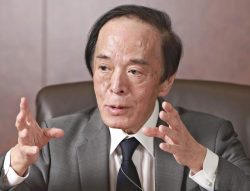Tokyo Male Host Club Companies, Hosts Concealed About ¥2 Billion in Income from Taxation through False Reporting

Promotional boards for host clubs offering male companionship are seen in Shinjuku Ward, Tokyo, on Tuesday.
17:30 JST, October 31, 2024
The Tokyo Regional Taxation Bureau has found that nine companies that operate host clubs offering male companionship, and their hosts, concealed a total of about ¥2 billion in income, it has been learned.
The companies in Tokyo’s Kabukicho district and various other parts of the nation falsely reported fees for “usage of expertise” for a corporation in Micronesia, among other practices, according to sources. As a result of the investigations, the back taxes and penalties are believed to have reached about ¥200 million in corporation tax for the nine companies, and several hundred million yen in income tax for the hosts.
Host clubs have already become a social issue as some places have engaged in malicious practices by, for example, forcing female customers to rack up large debts. It has now been uncovered that some host clubs have been involved in tax evasion.
According to sources, one of the operators, FG, and its eight related companies, all of which are based in Shinjuku Ward, Tokyo, as well as their about 30 male hosts, were subject to the investigations.
The bureau began investigating the FG group around 2023. The eight companies had reported about ¥300 million as fees for “usage of expertise” paid to a Micronesia-based corporation of which the founder of FG is a representative. However, they didn’t actually pay this amount. The bureau has determined the companies recorded false expenses to reduce reported income.
The bureau has also concluded that FG recorded fictitious outsourcing expenses to conceal about ¥300 million in income, according to sources.
As most of the hosts did not file tax returns, with some of them having disposed of records of payments issued by the clubs, the bureau has uncovered a concealment of significantly more than ¥1 billion in income. Combined with approximately ¥600 million evaded by the nine companies, the amount of concealed income is believed to have totaled about ¥2 billion.
The companies and the hosts “did not intend to conceal income,” a lawyer representing FG told The Yomiuri Shimbun. “However, we eventually accepted the bureau’s findings. We will provide proper instructions to our hosts.”
Top Articles in Society
-

Producer Behind Pop Group XG Arrested for Cocaine Possession
-

Man Infected with Measles Reportedly Dined at Restaurant in Tokyo Station
-

Man Infected with Measles May Have Come in Contact with Many People in Tokyo, Went to Store, Restaurant Around When Symptoms Emerged
-

Woman with Measles Visited Hospital in Tokyo Multiple Times Before Being Diagnosed with Disease
-

Australian Woman Dies After Mishap on Ski Lift in Nagano Prefecture
JN ACCESS RANKING
-

Producer Behind Pop Group XG Arrested for Cocaine Possession
-

Japan PM Takaichi’s Cabinet Resigns en Masse
-

Man Infected with Measles Reportedly Dined at Restaurant in Tokyo Station
-

Israeli Ambassador to Japan Speaks about Japan’s Role in the Reconstruction of Gaza
-

Videos Plagiarized, Reposted with False Subtitles Claiming ‘Ryukyu Belongs to China’; Anti-China False Information Also Posted in Japan























